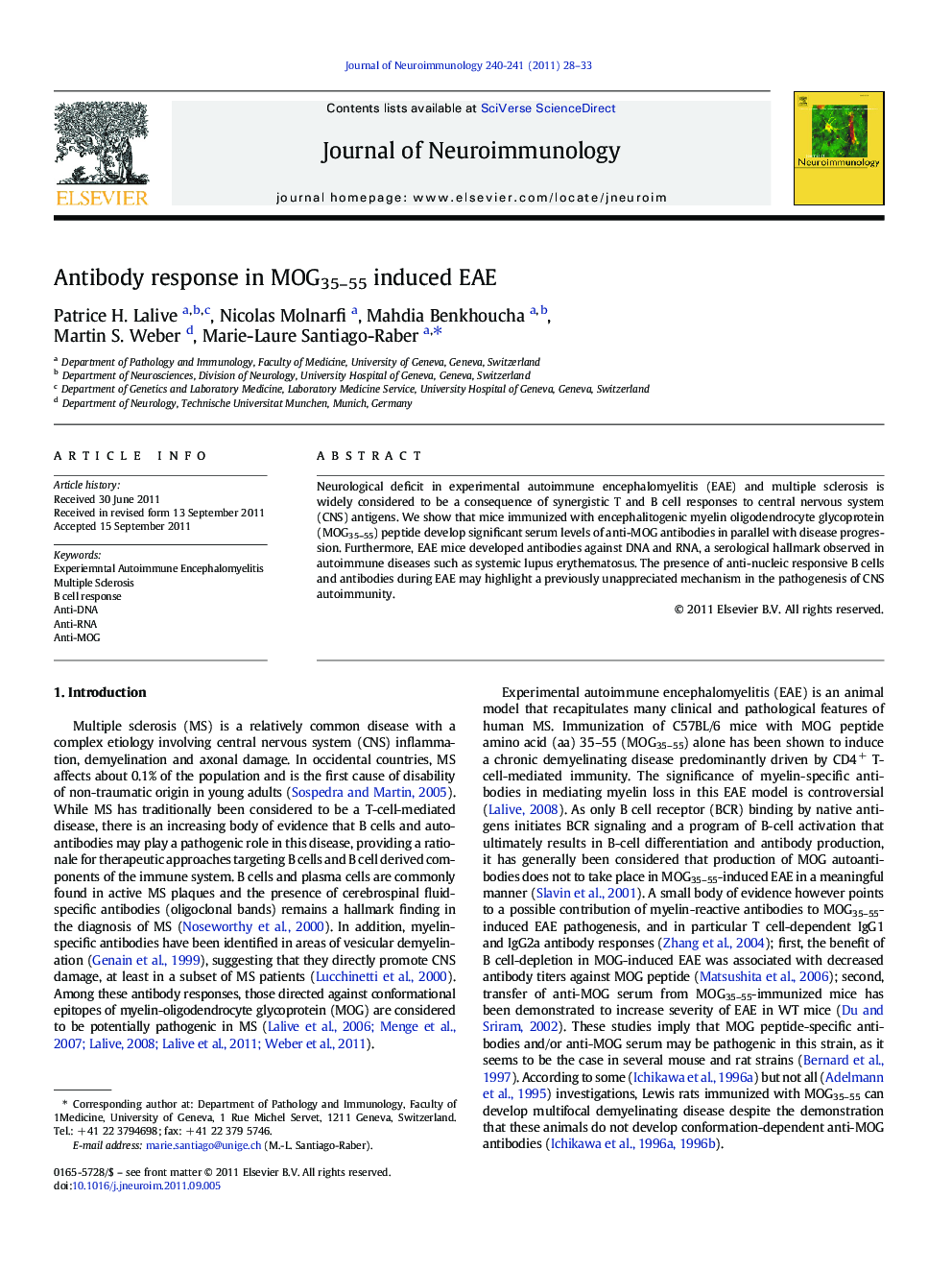| Article ID | Journal | Published Year | Pages | File Type |
|---|---|---|---|---|
| 6020886 | Journal of Neuroimmunology | 2011 | 6 Pages |
Abstract
Neurological deficit in experimental autoimmune encephalomyelitis (EAE) and multiple sclerosis is widely considered to be a consequence of synergistic T and B cell responses to central nervous system (CNS) antigens. We show that mice immunized with encephalitogenic myelin oligodendrocyte glycoprotein (MOG35-55) peptide develop significant serum levels of anti-MOG antibodies in parallel with disease progression. Furthermore, EAE mice developed antibodies against DNA and RNA, a serological hallmark observed in autoimmune diseases such as systemic lupus erythematosus. The presence of anti-nucleic responsive B cells and antibodies during EAE may highlight a previously unappreciated mechanism in the pathogenesis of CNS autoimmunity.
Related Topics
Life Sciences
Immunology and Microbiology
Immunology
Authors
Patrice H. Lalive, Nicolas Molnarfi, Mahdia Benkhoucha, Martin S. Weber, Marie-Laure Santiago-Raber,
